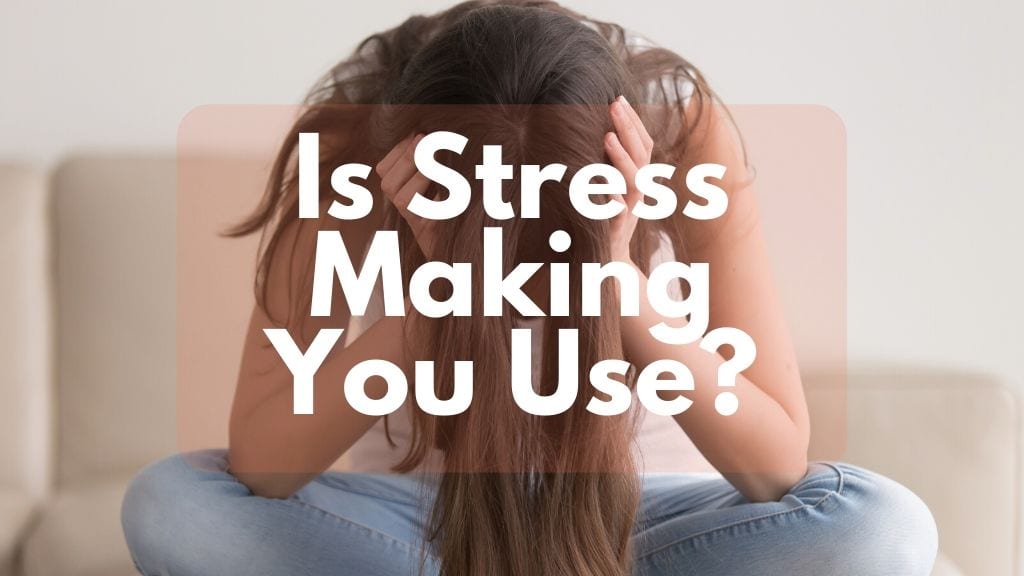Stress and Addiction: A Dangerous Combination

Written By
DreamLife RecoveryThe month of May promises the beauty of springtime with the renewal of spirit, which makes May perfect for being designated Mental Health Awareness month. Many people struggle with not only chronic stress and anxiety, but also a resulting increase in the use of substances.
For many people, the reflexive response to managing chronic stress involves leaning on alcohol or drugs to help them cope. Self-medication to cope with stress and anxiety can be very dangerous. Dependence on a substance to manage symptoms will lead to addiction. It is crucial to learn to recognize heightened stress levels and learn better ways to mitigate your stress.

How Chronic Stress Impacts Us and Leads to Substance Use
When we encounter a triggering event, person, situation, or place that sparks the stress response, a cascade of reactions in the brain result in the release of the stress hormones cortisol and adrenaline. Chronic stress refers to the prolonged and enduring stress response caused by events that are ongoing, such as financial problems, family or relationship issues, problems at work, or legal issues.
One common method of managing the discomfort of chronic stress is to self-medicate with drugs or alcohol. The relaxing effects of the substance that seem to quiet the mind and reduce anxiety are initially helpful. However, when the substance becomes a daily crutch and tolerance increases, the chances of addiction also increase. If dependency or addiction develops, it is necessary to access the expert guidance of an addiction recovery program that can help change the way stressful thoughts or emotions trigger substance use.
7 Tips for Managing Stress in Recovery
Stress management is an essential recovery tool that complements other aftercare strategies. To better regulate your stress levels consider these helpful strategies:
- Lifestyle changes. Establish healthy habits that help restore wellness and promote sustained recovery. This includes keeping a regular sleep schedule, getting regular exercise, and sticking to a healthy diet. All of these will contribute toward reducing stress and improving wellbeing.
- Feed the soul. Finding that peaceful place within, through meditation or prayer, can be profoundly relaxing. Nurture the soul by practicing gratitude and seek out occasions to practice virtues toward others.
- Practice mindfulness. Directing attention to the present moment while focusing on the breathing process can help rein in runaway stressful thinking. Focus thoughts on the here and now and resist distracting thoughts that keep you feeling anxious.
- Keep a journal. Journaling is an excellent tool for offloading distressing emotions and thoughts. Just the practice of writing these thoughts down helps to process the feelings and diminishes their potency.
- Find your passion. Taking up a hobby provides a healthy outlet for stress or anxiety. Pour your energies into creating something meaningful or beautiful, such as rekindling a passion for art or music, planting a garden, or starting a blog.
- Deep breathing. Deep breathing exercises can be utilized at any time of day. Simply breathe in slowly for the count of 5, hold the breath for a count of 5, and then release the breath completely to the count of 5. Repeat several times for a relaxing effect.
- Stay connected. Social connection is incredibly important. Keep your support system close to you, through recovery meetings, conversations with a sponsor, or time spent with close friends and family.
DreamLife Recovery is a comprehensive addiction recovery program located in western Pennsylvania. Our rehab features a blend of evidence-based therapies and holistic therapies, such as equine therapy, yoga, massage, and exercise, to help clients thrive in their recovery journey. For more information about the program, please contact the team today at (844) 402-3592.
Resources:
- “Understanding the stress response” – Harvard Health Publishing, Harvard Medical School; 6 July, 2020
- Sinha, Rajita. “Chronic stress, drug use, and vulnerability to addiction.” Annals of the New York Academy of Sciences vol. 1141 (2008): 105-30
- Marcus, Marianne T, and Aleksandra Zgierska. “Mindfulness-based therapies for substance use disorders: part 1.” Substance abuse vol. 30,4 (2009): 263-5







